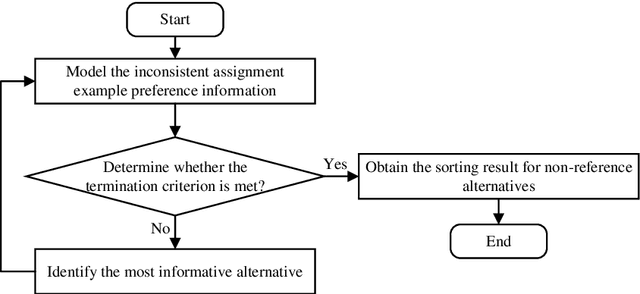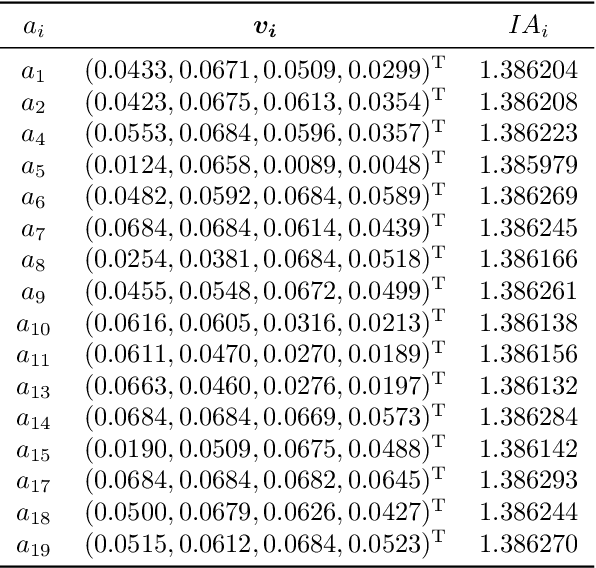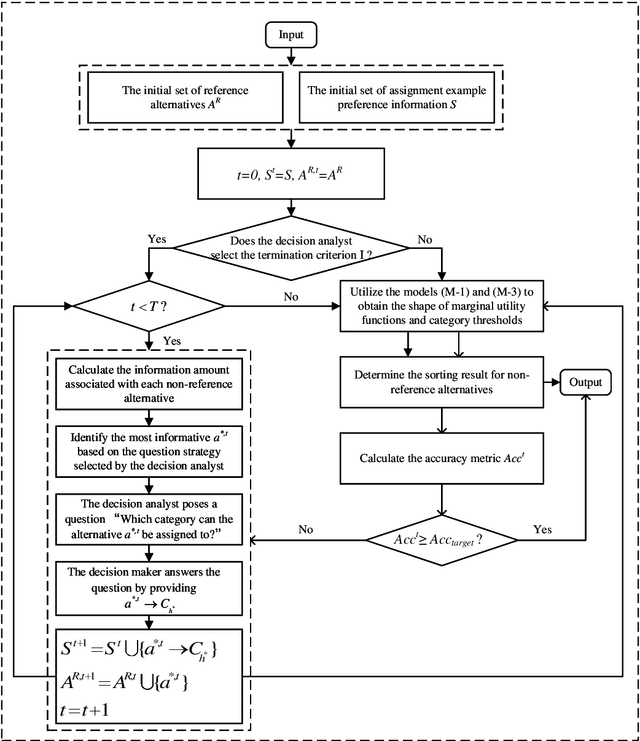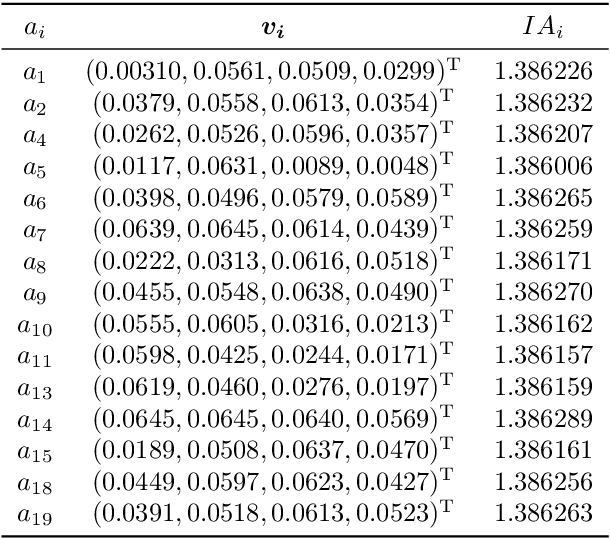Zhuolin Li
An incremental preference elicitation-based approach to learning potentially non-monotonic preferences in multi-criteria sorting
Sep 04, 2024



Abstract:This paper introduces a novel incremental preference elicitation-based approach to learning potentially non-monotonic preferences in multi-criteria sorting (MCS) problems, enabling decision makers to progressively provide assignment example preference information. Specifically, we first construct a max-margin optimization-based model to model potentially non-monotonic preferences and inconsistent assignment example preference information in each iteration of the incremental preference elicitation process. Using the optimal objective function value of the max-margin optimization-based model, we devise information amount measurement methods and question selection strategies to pinpoint the most informative alternative in each iteration within the framework of uncertainty sampling in active learning. Once the termination criterion is satisfied, the sorting result for non-reference alternatives can be determined through the use of two optimization models, i.e., the max-margin optimization-based model and the complexity controlling optimization model. Subsequently, two incremental preference elicitation-based algorithms are developed to learn potentially non-monotonic preferences, considering different termination criteria. Ultimately, we apply the proposed approach to a credit rating problem to elucidate the detailed implementation steps, and perform computational experiments on both artificial and real-world data sets to compare the proposed question selection strategies with several benchmark strategies.
Lexicographic optimization-based approaches to learning a representative model for multi-criteria sorting with non-monotonic criteria
Sep 03, 2024



Abstract:Deriving a representative model using value function-based methods from the perspective of preference disaggregation has emerged as a prominent and growing topic in multi-criteria sorting (MCS) problems. A noteworthy observation is that many existing approaches to learning a representative model for MCS problems traditionally assume the monotonicity of criteria, which may not always align with the complexities found in real-world MCS scenarios. Consequently, this paper proposes some approaches to learning a representative model for MCS problems with non-monotonic criteria through the integration of the threshold-based value-driven sorting procedure. To do so, we first define some transformation functions to map the marginal values and category thresholds into a UTA-like functional space. Subsequently, we construct constraint sets to model non-monotonic criteria in MCS problems and develop optimization models to check and rectify the inconsistency of the decision maker's assignment example preference information. By simultaneously considering the complexity and discriminative power of the models, two distinct lexicographic optimization-based approaches are developed to derive a representative model for MCS problems with non-monotonic criteria. Eventually, we offer an illustrative example and conduct comprehensive simulation experiments to elaborate the feasibility and validity of the proposed approaches.
 Add to Chrome
Add to Chrome Add to Firefox
Add to Firefox Add to Edge
Add to Edge